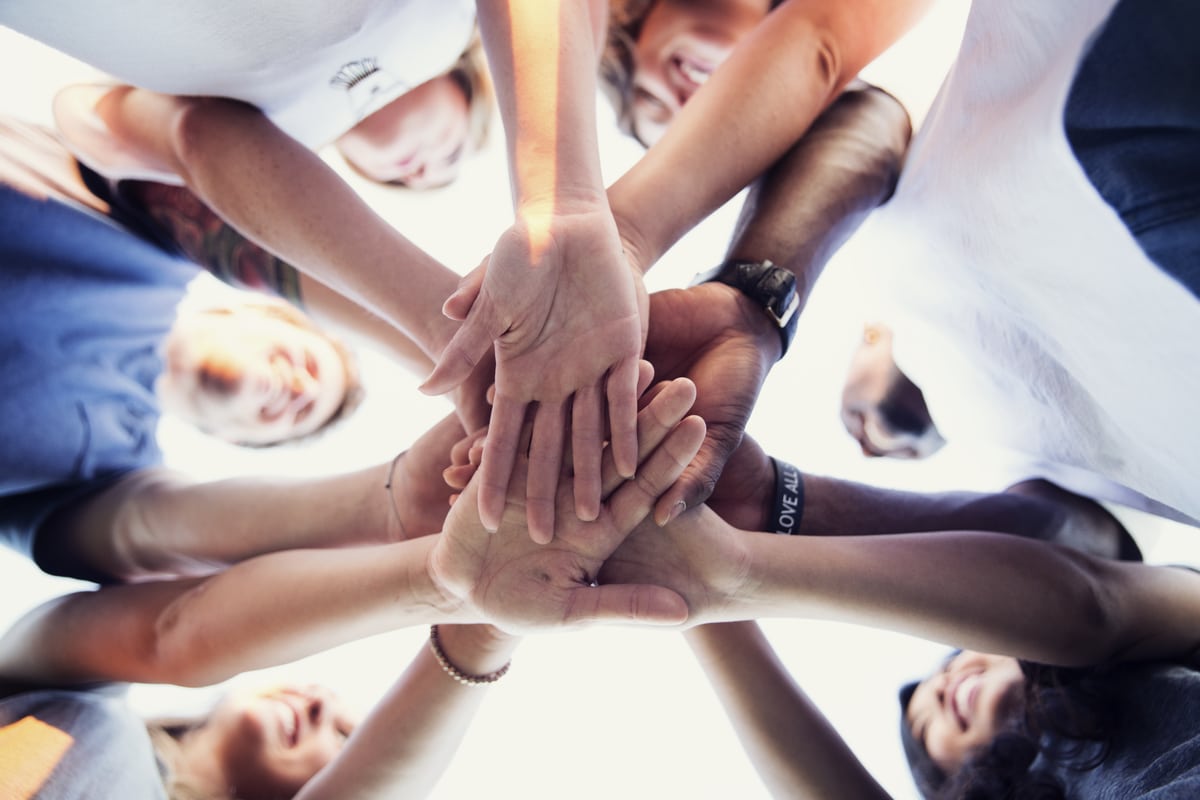Yesterday I was the guest on a podcast called the Gaytheist Manifesto curated by two Atheists (one Transgender, the other non-binary, pansexual). Before the interview began, the initial question posed by my hosts seemed to be, “How can two LGBTQ, nonreligious human beings and a cis-hetero, Progressive Christian pastor navigate their differences and find common productive ground?”
In a few moments, we actually realized it was rather easy.
My hosts shared the tensions of being part of a larger Atheist community, where some neglect the social justice issues that matter so deeply to them as members of the LGBTQ community—while also finding strange alignment with Progressive Christians in those humanitarian causes, yet having a totally divergent religious worldview.
They both shared the experience of not quite finding a home in either group.
This sense of homelessness is familiar territory for me, as it isn’t unlike the discomfort I feel as a twenty-year Christian minister, fully horrified at the hateful, exclusionary expression of the faith I often see in the world—while recognizing the affinities I feel with so many of my Atheists friends. I may share a religious tradition with American Evangelicals, but almost nothing with them about the expression of that tradition—while my desire to emulate the life of Jesus often aligns me with those who claim no faith and would never consider Christianity.
This odd, slightly disorienting collaboration is probably the sweet spot of our real belonging.
I think many of us have this same sense of frustration when trying to make our home inside something that is too small to accommodate us (religion, political party, people group), and the remedy isn’t editing or concealing ourselves in order to fit into those cramped spaces—it’s in looking at a bigger place to live by redefining what our tribe is.
Tribalism is powerful no matter where you’re standing. We all seek belonging and connection. We all look for convenient and expedient ways to define where we fit, where we’re accepted—who are our people.
We all want to figure out where we’re safe to be fully authentic and to live as openly as we can—and in doing this, we want to identify the Them to our newfound Us , so that we know who the enemy is that we’re up against.
The problem, is that the boxes we often use to delineate humanity are never going to be sufficient enough to allow us to neatly organize people that way. There are no boxes we fit comfortably in.
The media wants easily defined tribes.
Politicians want them.
Evangelicals want them.
The extremists of any group want them.
These groups all want a clearly identified Us and Them, so that they can choose their sides and go to war, and have the line between the good and bad guys be crystal clear.
This isn’t going to be accomplished by politics or religion or nation of origin or sexuality—it’s going to be something ever deeper.
Some people will tell you that there isn’t an Us and a Them in America—but I disagree. I believe that right now there are two distinct opposing sides in this nation—they’re just not delineated by theology or race or political party or gender identity or sexual orientation or nation of origin.
It isn’t Republican vs. Democrat.
It isn’t Christians vs. the LGBTQ community.
It isn’t Theists vs. Atheists.
It isn’t American citizens vs. Immigrants.
This isn’t how the true Us and Them are defined:
The Us, is made of human beings who believe that all people have the same intrinsic value without caveat or condition—and the Them of those who believe orientation or religious worldview or skin color make someone morally or genetically inferior.
The Us, is made of human beings whose compassion even extends to hurting people that they appear on the surface to have little in common with—and the Them defined by people who only care for those they deem “their own kind.”
The Us, is made of human beings who believe every person has the right to live where they wish, to marry who they choose, to profess the faith they subscribe to—and the Them is made of those who believe themselves to be the arbiters of such things.
The Us, is made of human beings who believe sick people should be cared for, hungry people should be fed, and hurting people should be comforted—and the Them by those who really don’t give a damn what happens to anyone else.
Compassion is defining our tribe.
It is in this shared desire to care for one another and for this planet, that we who are a disparate assembly find an affinity that transcends the other boxes. It is the bigger table we are building, the expansive community we are forming.
And this is the side we choose regardless of the other boxes: the side of empathy and equality and benevolence and diversity. These don’t come with a prerequisite doctrinal statement or political affiliation, nor with any condition regarding race or orientation or pigmentation. No group has a market cornered on such selflessness and decency.
The powerful thread knitting together this tribe in these days—is humanity that gives a damn about other humanity.
This is the place where like hearted people can all find belonging and live fully and heal wounds and fix broken things.
And this compassionate tribe of those who give a damn—is what will save the world.




